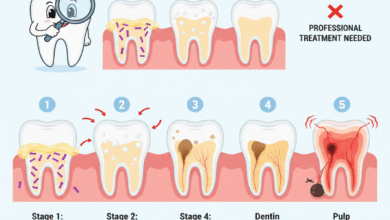Shoulder Injury Claims Explained: Your Rights After An Accident

Shoulder injuries are more common than many people realise. Whether caused by a workplace accident, a fall in a public place, or a collision on the road, damage to the shoulder joint can have long-lasting consequences. From difficulty lifting everyday items to being unable to work, the effects can be both painful and financially draining.
If your injury happened because someone else was at fault, you may be entitled to compensation. This article explains your rights after an accident, how the claims process works, where to find trusted solicitors for shoulder injury claims, and what you need to do to give yourself the best chance of success.
Why Shoulder Injuries Are So Serious
The shoulder is one of the most complex joints in the human body, combining bones, muscles, ligaments and tendons to allow a wide range of movement. That complexity also makes it vulnerable. Even a relatively small accident can cause significant damage.
The impact of a shoulder injury is often underestimated. Pain and stiffness can restrict your mobility, make it impossible to perform manual tasks, or even prevent you from driving. In more severe cases, surgery and long-term physiotherapy may be required. All of this can disrupt not only your health but also your independence and ability to earn a living.
Common Causes Of Shoulder Injuries
Accidents leading to shoulder injuries occur in a wide range of situations. Some of the most common include:
- Workplace accidents – Poor manual handling training, inadequate equipment, or repetitive overhead tasks can all cause serious shoulder problems.
- Slips, trips and falls – Falling awkwardly often leads to dislocations or fractures. Employers, businesses, and councils all have duties to reduce these risks.
- Road traffic accidents – Drivers and passengers are particularly vulnerable to shoulder injuries due to seatbelt trauma, side impacts, or forceful collisions.
- Housing disrepair – For example, if your landlord negligently left your house in a dangerous state, you could fall and hurt your shoulder
- Sports accidents – Contact sports and heavy training often put the shoulder under extreme stress, resulting in torn ligaments or rotator cuff injuries.
- Public liability accidents – Hazards in shops, restaurants or public spaces can cause falls or impacts leading to damage.
Identifying the cause is crucial, as it helps determine who may be held responsible.
Types Of Shoulder Injuries You Can Claim For
There are many potential injuries to the shoulder joint, ranging from mild to life-changing. Common diagnoses that lead to compensation claims include:
- Rotator cuff tears – Damage to the tendons supporting the shoulder joint, often requiring surgery.
- Labral tears – A tear in the cartilage around the socket, which can cause instability and long-term pain.
- Dislocations – Where the ball of the joint is forced out of its socket, leaving lasting weakness.
- Frozen shoulder – A painful condition that restricts movement for months or even years.
- Fractures – Broken collarbones and humeral fractures are frequent after falls or crashes.
- Bursitis and tendonitis – Inflammation of the soft tissue structures, usually linked to repetitive strain.
The diagnosis and expected recovery time play a large part in how much compensation you could receive.
Your Right To Claim Compensation
If another person or organisation’s negligence caused your injury, you have a legal right to seek compensation. Negligence occurs when a duty of care is breached. For example:
- An employer failing to provide proper lifting training
- A driver failing to obey the rules of the road
- A shop failing to clear up a spillage
- A council neglecting to repair broken paving
To succeed in your claim, you will need to show that a duty of care existed, that it was breached, and that the breach caused your injury. A solicitor specialising in personal injury can advise you on whether you meet these conditions.
How Much Compensation Could You Receive?
Compensation is designed to put you back, as far as possible, into the position you were in before the accident. It is usually divided into two categories:
- General damages – Covering pain, suffering, and loss of amenity. For example, a minor shoulder injury may be valued at several thousand pounds, while a severe injury with permanent disability could attract awards over £40,000.
- Special damages – Covering financial losses. These include lost earnings, travel expenses, medical treatment, physiotherapy costs, and the cost of care if you need assistance.
The total award will depend on the severity of your injury, your age and occupation, and how the injury affects your daily life.
What Evidence Do You Need?
Evidence is vital to support your case. Examples include:
- Medical records, scans, and independent medical assessments
- Photographs of the accident scene and your injuries
- Witness statements from colleagues, passers-by, or passengers
- CCTV or dashcam footage
- Payslips or invoices showing lost income
- Receipts for any out-of-pocket expenses
The stronger your evidence, the better your chance of proving liability and securing a fair settlement.
How Long Do You Have To Claim?
In most cases, you have three years from the date of your accident to start a claim under the Limitation Act 1980. There are some exceptions:
- If you were under 18, the three-year period starts on your 18th birthday.
- If you lacked mental capacity, the limit is suspended until capacity is regained.
- If the injury only became apparent later (for example, a repetitive strain injury), the clock may start from the date of diagnosis.
It’s best to act quickly, as gathering evidence is easier closer to the time of the accident.
How Long Do Shoulder Injury Claims Take?
The time needed depends on the complexity of the case. If liability is accepted early and the injury is minor, a claim may settle within six to nine months. Where liability is denied, or the injury has long-term effects, cases can take two years or longer. Interim payments may be available to ease financial pressure while your claim is ongoing.
No Win No Fee Agreements
Most solicitors handle shoulder injury claims on a No Win No Fee basis. This means you pay nothing upfront, and only pay a capped success fee if you win. If your claim is unsuccessful, you don’t owe your solicitor anything. This arrangement allows you to pursue justice without the risk of large legal bills.
Future Losses And Lifestyle Impacts
Compensation is not just about immediate costs. If your shoulder injury means you cannot return to your previous job, you can claim for future loss of earnings. You may also claim for reduced quality of life — for example, being unable to pursue sports or hobbies you once enjoyed. Factoring in these long-term impacts ensures you receive fair compensation that reflects your true loss.
Case Studies And Real-Life Examples
Case studies provide useful insight into how claims are valued. For instance, a factory worker with a serious rotator cuff tear who required surgery and time off work may receive over £20,000 in damages. A more complex case involving permanent disability could result in compensation well above £40,000. These examples highlight the wide variation depending on the injury and circumstances.
Taking The Next Step
If you have suffered a shoulder injury in an accident that wasn’t your fault, you are entitled to explore your legal options. Compensation can cover lost income, pay for your treatment, and acknowledge the pain and disruption you’ve endured.
The most effective way forward is to consult a personal injury solicitor. They can explain your rights, gather the necessary evidence, and negotiate the best settlement on your behalf. By taking expert advice, you can focus on your recovery while ensuring your financial and legal interests are protected.



